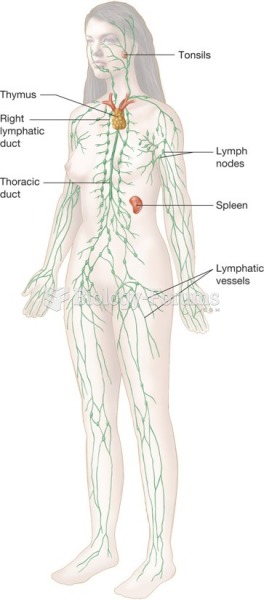|
|
|
Did you know?
HIV testing reach is still limited. An estimated 40% of people with HIV (more than 14 million) remain undiagnosed and do not know their infection status.
Did you know?
Although puberty usually occurs in the early teenage years, the world's youngest parents were two Chinese children who had their first baby when they were 8 and 9 years of age.
Did you know?
There are over 65,000 known species of protozoa. About 10,000 species are parasitic.
Did you know?
There are more sensory neurons in the tongue than in any other part of the body.
Did you know?
The first oral chemotherapy drug for colon cancer was approved by FDA in 2001.







